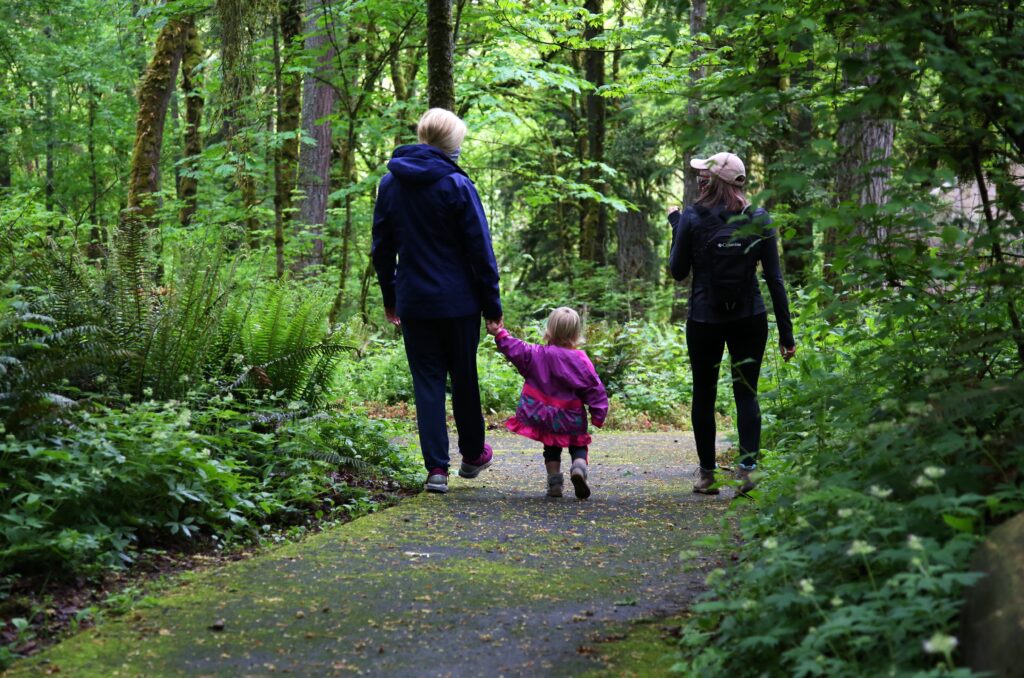It’s well established that
getting outside is healthy and fun
, but new research takes things a step further, finding that outdoor recreation is a public health necessity.
The
research
, led by scientists at Oregon State University, analyzed peoples’ behavior and well-being during the COVID-19 pandemic and found that outdoor recreation’s mental health benefits were “significant and measurable,” a result that “strongly suggests policymakers should view outdoor recreation spaces not as luxuries but as essential public health infrastructure,” the university said in a news release Tuesday.
Researchers with OSU’s
HEAL lab
collected data from 503 adults in an online survey in February 2021, a period that was marked by
another wave of COVID-19 cases in Oregon
, just as vaccines became available. A reduction in outdoor recreation among respondents was directly associated with an increase in stress and depressive symptoms, while more frequent outdoor recreation predicted better well-being, the university said.
“Even after controlling for numerous COVID-specific risk and protective factors, outdoor recreation emerged as an important protective factor for mental health during the crisis,” lab director Xiangyou “Sharon” Shen said in the news release. “This evidence supports treating outdoor recreation as behavioral medicine and classifying outdoor recreation spaces alongside facilities such as hospitals and pharmacies.”
Shen said the decision by public land managers to
shut down parks
and other outdoor recreation areas at the start of the 2020 pandemic came with clear mental health costs.
“For future similar crises, we recommend protocols that prioritize keeping outdoor recreation spaces open with appropriate safety modifications, recognizing their role as essential mental health infrastructure,” she said.
In the OSU study, 68% of survey respondents said activities close to home like walking and gardening were their most frequent forms of outdoor recreation, while 32% said they engaged in traditional outdoor sports or other nature-based activities. Walking accounted for 57% of all reported outdoor recreation, researchers said.
Those numbers highlight the importance of local parks, greenways and tree-lined residential streets, which “became the foundation of public mental health” during the pandemic, Shen said.
However, researchers said they found disparities among racial minorities and low-income respondents, groups that were more likely to reduce their time outdoors. That pattern likely contributed to disproportionate mental health impacts experienced by communities of color, researchers said, and underscored the importance of providing widespread access to parks.
“Our research shows that outdoor recreation isn’t some kind of bonus, it’s a public health necessity,” Shen said. “Policymakers who want to improve population mental health and advance health equity should prioritize outdoor recreation access with the same urgency they apply to other essential health services.”
Oregon Outdoors News
-
Find one of Oregon’s tallest waterfalls on an easy little hike in the mountains
-
How to find Oregon’s hidden waterfall corridor, tucked away deep in the Cascade Mountains
-
Oregon coast state park will reopen after 6-month closure
-
Upgrading your coffee gear for camping season? Yeti Rambler pour over is durable, designed for the outdoors, and just $30





More Stories
Your local park might be as important as your local hospital, new study finds
Your local park might be as important as your local hospital, new study finds
Your local park might be as important as your local hospital, new study finds